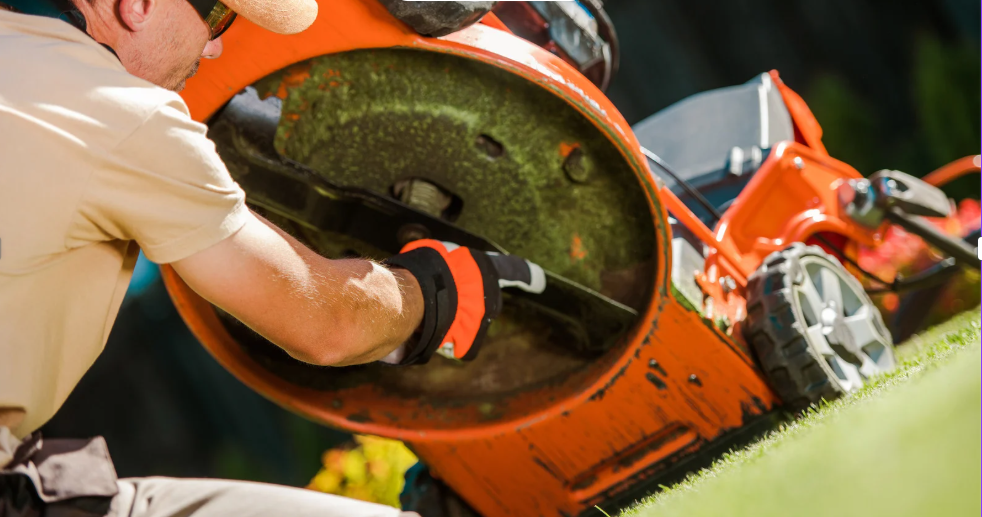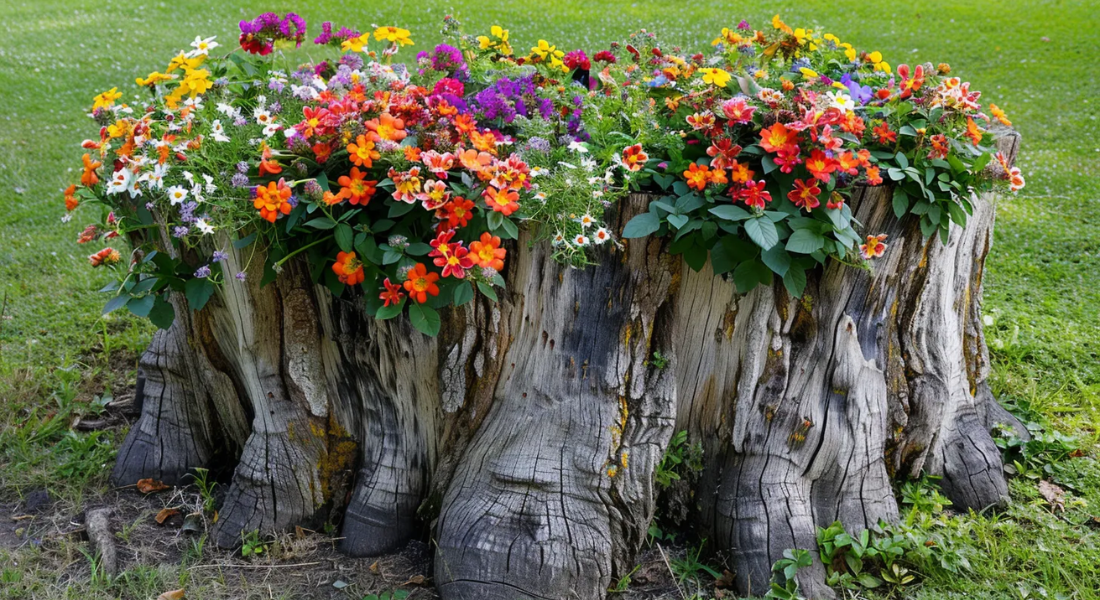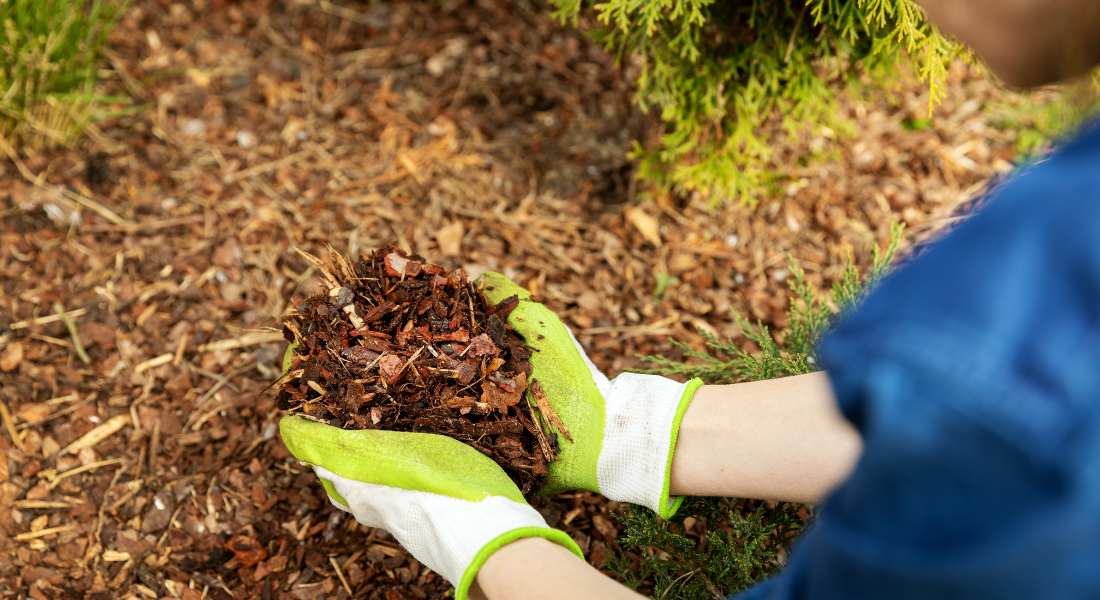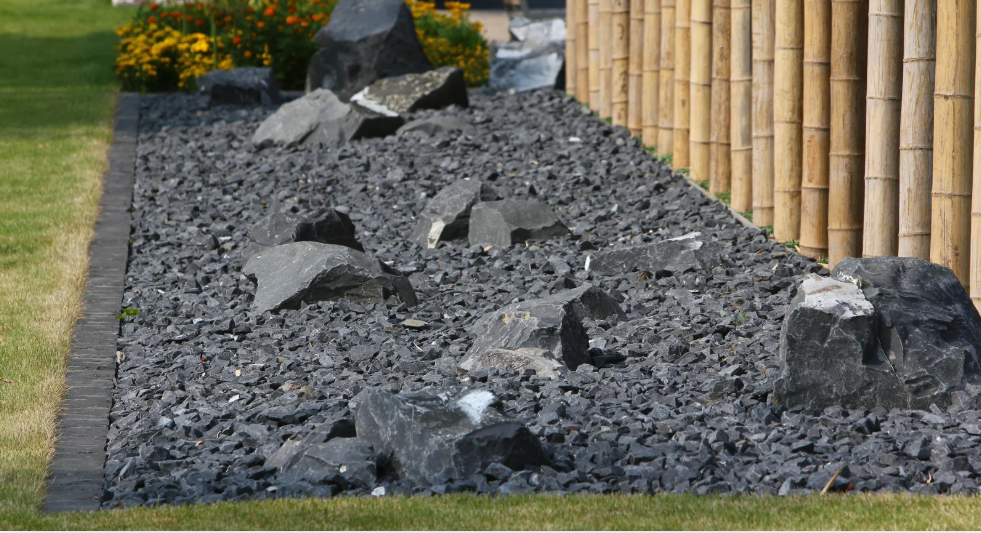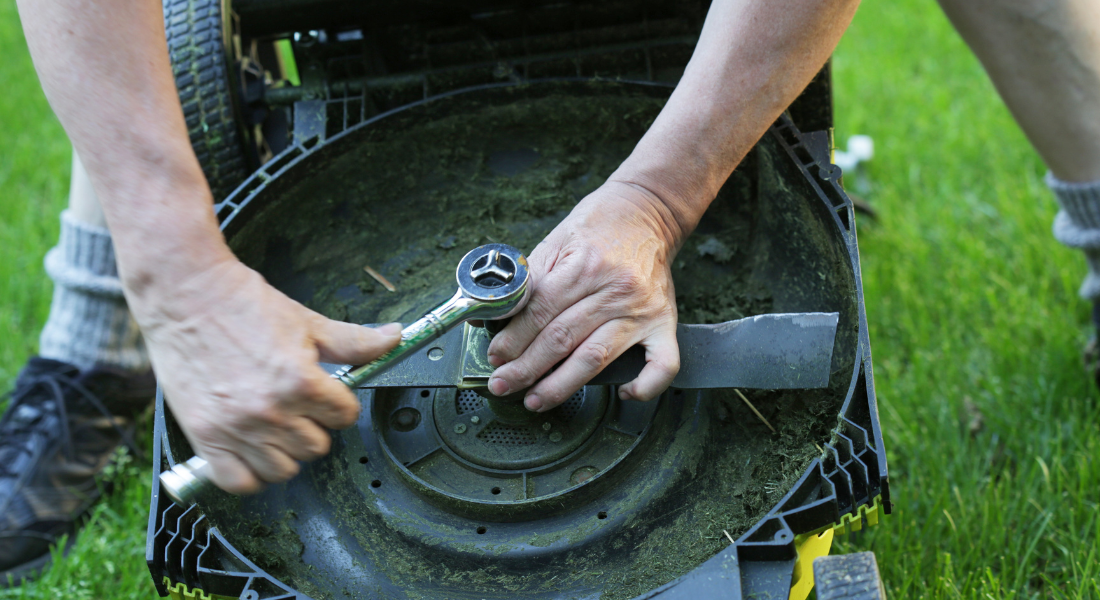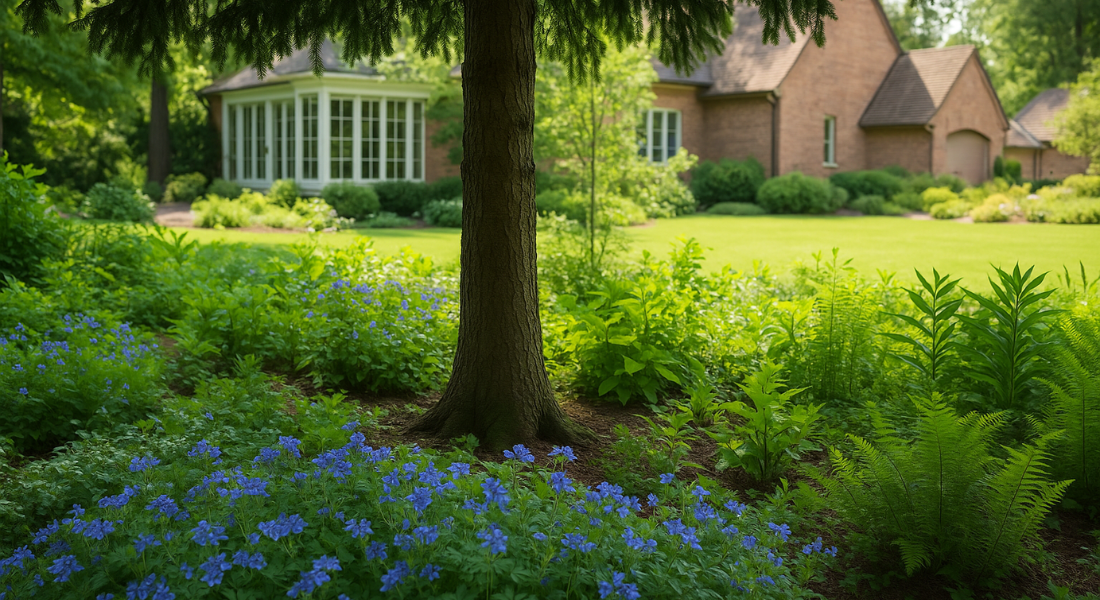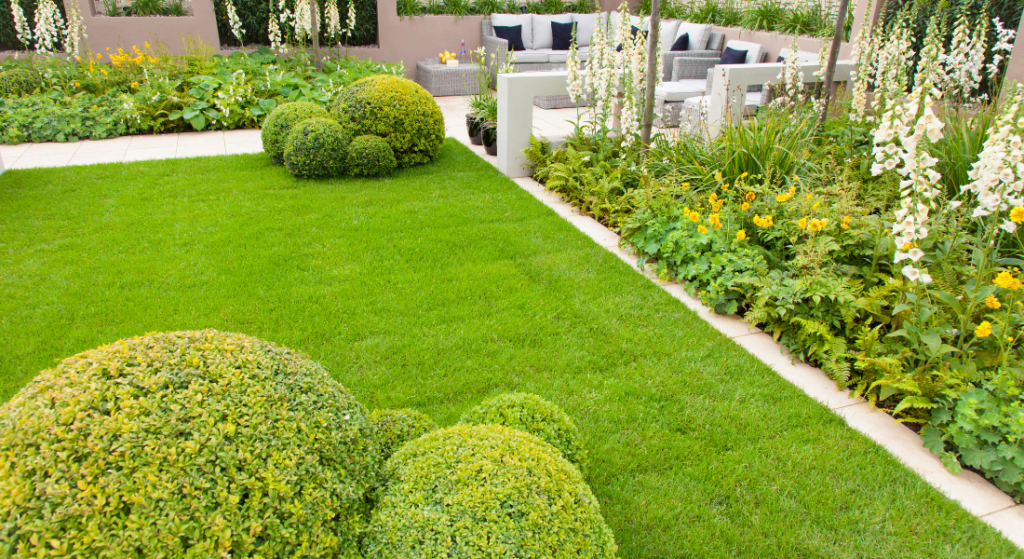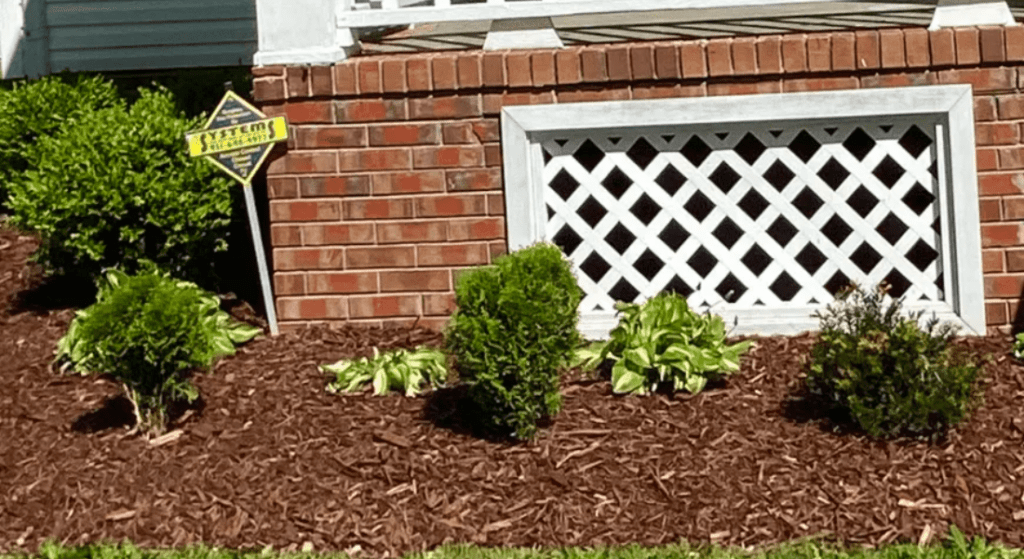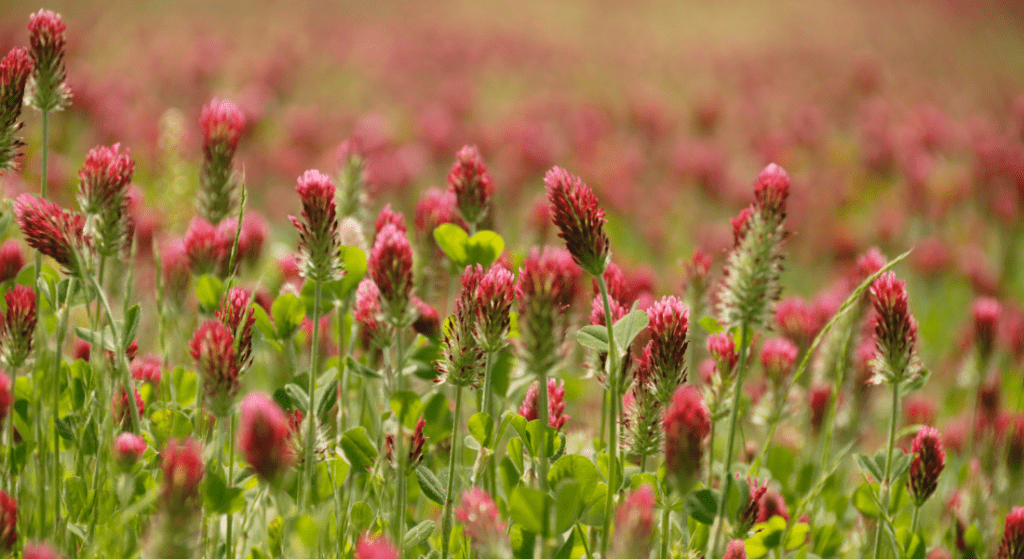5 Best Grass Seeds for Clarksville, TN
Are you struggling to find the right grass for your lawn in Clarksville, Tennessee? With the hot summers, unpredictable winters, and a mix of sun and shade, choosing the perfect grass type can feel overwhelming. The wrong choice can lead to a patchy, brown lawn that’s difficult to maintain. But don’t worry—you’re not alone! Many homeowners face the same challenge of selecting the best grass seed for Tennessee’s unique climate.
In this guide, we’ll simplify the process for you. We’ll explore the top five grass types that are perfect for Clarksville’s environment, so you can enjoy a lush, green lawn all year round. Whether you’re dealing with full sun, heavy foot traffic, or a need for low maintenance, there’s a grass seed that’s right for your lawn. Plus, pairing the right grass with expert lawn care services and professional lawn maintenance ensures your yard stays healthy and green throughout the seasons. Let’s dive in and find the perfect solution for your lawn care needs!
How to Choose the Perfect Grass for Your Clarksville, Tennessee Lawn
Choosing the right grass for your lawn in Clarksville, Tennessee, requires understanding the local climate and soil condition heat and droughts. Clarksville is in a transition zone, where both warm-season and cool-season grasses can thrive, each with its own strengths depending on the season. The region, located in Middle Tennessee, falls under USDA Hardiness Zones 6b to 7a, which typically experiences hot summers and mild to cold winters.
The best grasses for this area are those that can withstand the hot, humid summers and cooler, unpredictable winters, while also being drought-resistant, shade-tolerant, and low maintenance. Understanding these factors is key to selecting the right grass seed that will thrive in your lawn year-round.
Warm-Season vs. Cool-Season Grass: Which is Best for Your Lawn?
In Clarksville, you have the option to choose between warm-season and cool-season grasses, each with its unique benefits. Warm-season grasses like Bermuda Grass and Zoysia Grass are ideal for the hot, dry summer months since they grow actively in warm temperatures and need less water. These grasses provide excellent drought tolerance and maintain a strong green color during peak summer heat.
On the other hand, cool-season grasses like Fescue and Kentucky Bluegrass thrive in cooler weather, maintaining their rich dark green color during the fall and spring. Fine Fescue is particularly shade-tolerant, making it a popular choice for lawns with partial sun.
For a lawn that stays green and healthy all year long, many Clarksville homeowners find it best to plant a mix of both warm-season and cool-season grasses.
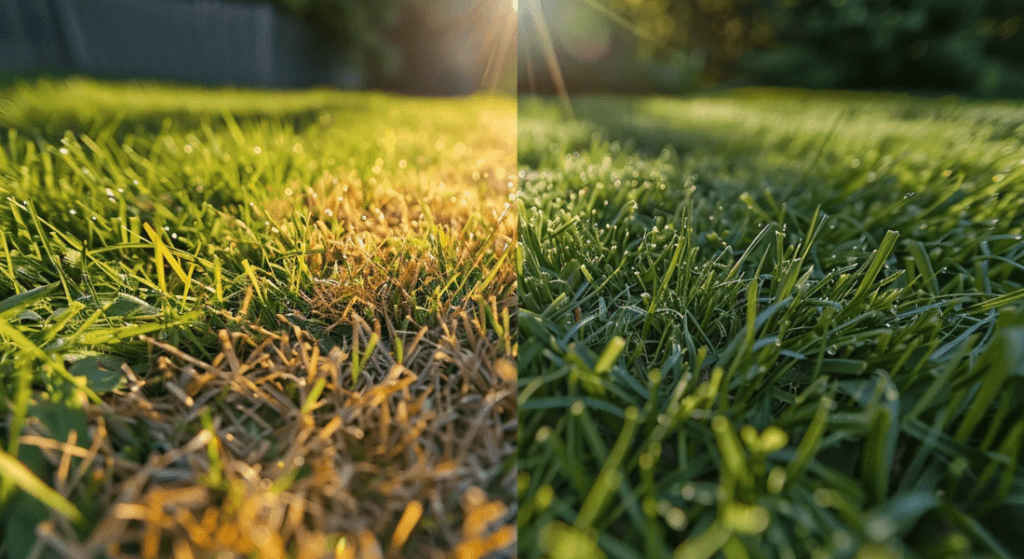
Top 5 Grass Types for Clarksville, Tennessee Lawns
Now that we’ve covered the basics of Tennessee’s climate and grass types, let’s dive into the top five best grass seed options for Tennessee lawns. These grass types have been chosen based on their suitability for Middle Tennessee’s climate, ease of care, and ability to create a beautiful, green lawn.
- Tall Fescue
- Kentucky Bluegrass
- Bermuda Grass
- Zoysia Grass
- Perennial Ryegrass
Fescue
Tall Fescue is a cool-season grass that’s a favorite among Tennessee homeowners, especially the tall fescue and fine fescue varieties. This grass type is great for high-traffic areas and can adapt to different soil types, making it a flexible option for home lawns. Fescue is also drought-tolerant, which means it doesn’t need a lot of water to stay lush and green during the hot summer months. For the best results, it’s recommended to plant Fescue in early fall or late spring when the weather is cooler.
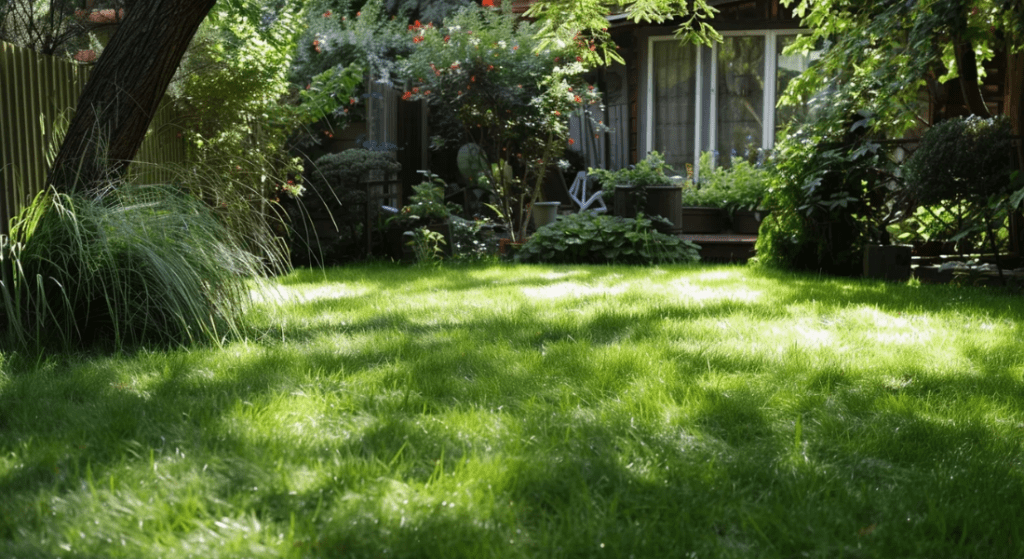
Kentucky Bluegrass
Kentucky Bluegrass is another cool-season grass that does well in Tennessee, especially in cooler months. It has a fine texture and a rich, dark green color, creating a lush, dense lawn that looks great all year round. However, Kentucky Bluegrass needs more water than Fescue and thrives in well-drained soils. If you’re considering Kentucky Bluegrass, be prepared to water it regularly, especially during dry, hot summer periods.
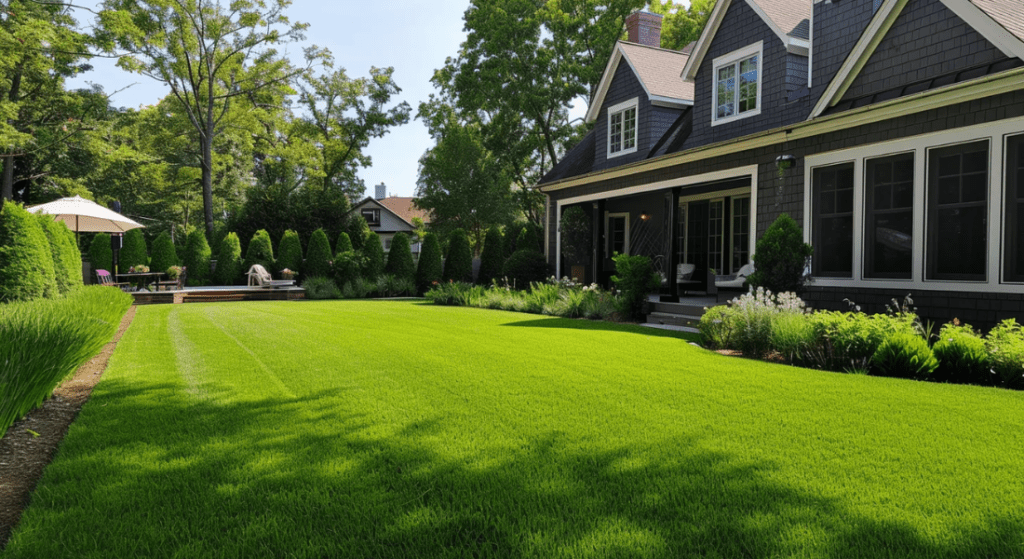
Bermuda Grass
Bermuda Grass is a warm-season grass that works great for Clarksville lawns with full sun exposure. This grass loves hot weather and is highly drought-resistant, meaning it needs less water and fertilizer compared to cool-season grasses. Bermuda Grass also has a strong ability to bounce back from wear and tear, making it perfect for high-foot-traffic areas like playgrounds and sports fields.
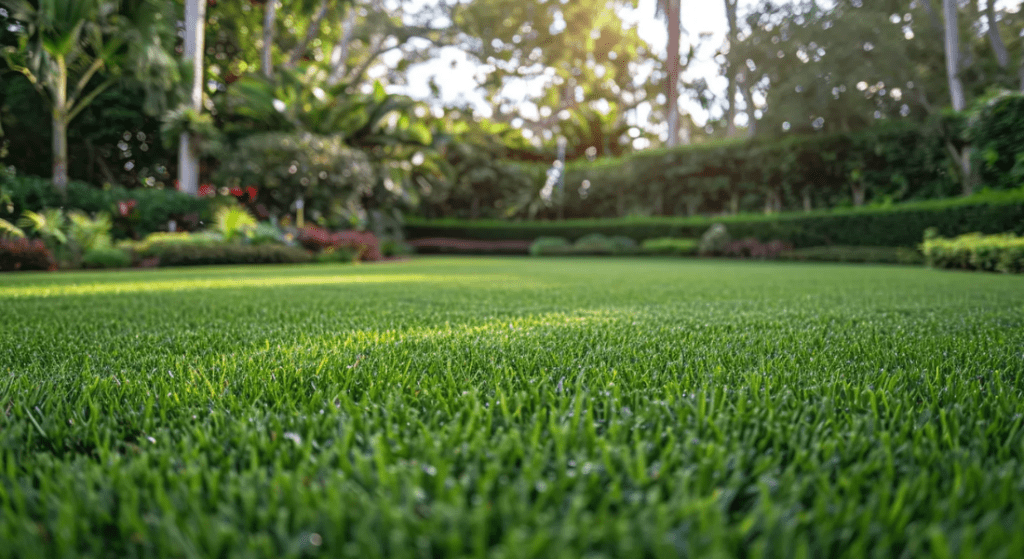
Zoysia
Zoysia Grass is another warm-season grass that’s becoming popular in Tennessee for its fine texture and ability to stay green during the hot summer months. This grass is drought-resistant, meaning it can handle periods of low rainfall without losing its lush green color. Zoysia is also quite shade-tolerant, making it a great option for lawns that get a mix of sun and shade.
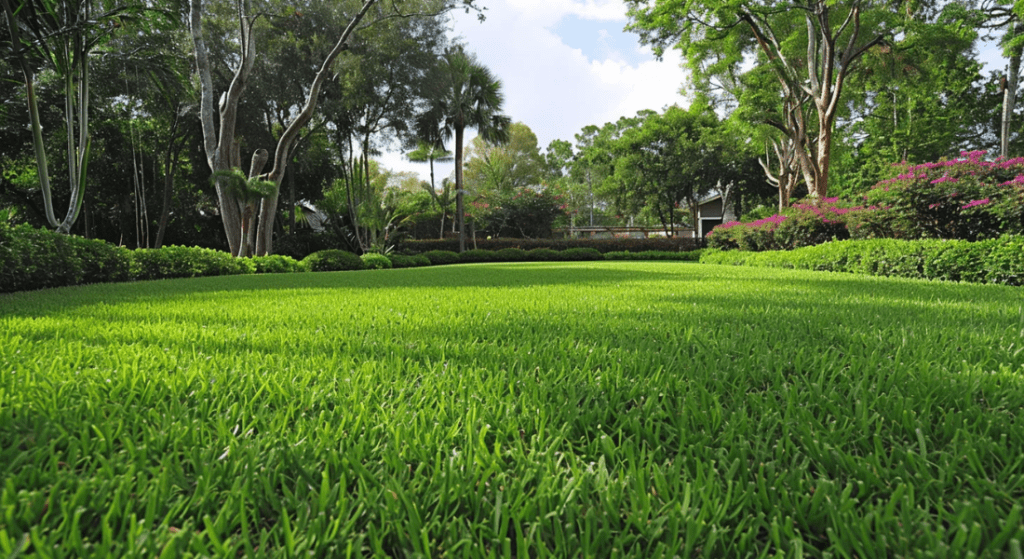
Perennial Ryegrass
Perennial Ryegrass is a cool-season grass that’s often used to overseed warm-season lawns in the fall. It germinates quickly, providing a temporary green cover that helps prevent soil erosion and keeps lawns looking full during the cooler months. Although Perennial Ryegrass typically doesn’t survive the hot Tennessee summers, it works well with other grasses that go dormant in cooler weather.
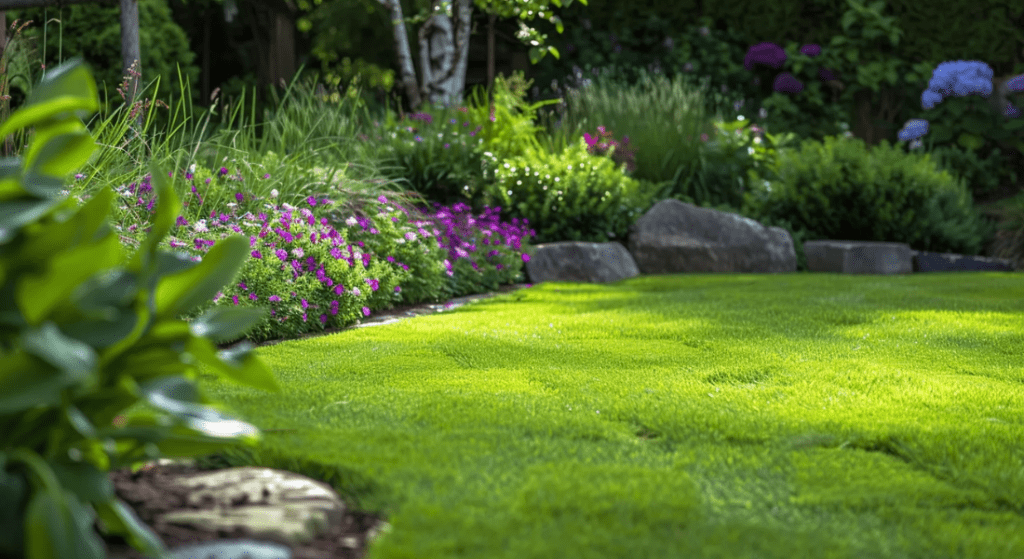
Lawn Care Tips for a Thriving Tennessee Lawn
To keep your lawn green and healthy all year round in Tennessee, it’s important to use lawn care practices that match the grass types you’ve chosen. Here are some tips for Tennessee homeowners:
- Watering: Both warm-season and cool-season grasses need proper watering, especially during dry spells. Water deeply but less often to promote deep root growth.
- Mowing: Regular mowing is key to a healthy lawn. Adjust your mower height depending on the grass type; for example, Bermuda Grass should be mowed shorter than Fescue or Kentucky Bluegrass.
- Fertilization: Use a balanced fertilizer to support healthy growth and a vibrant green color. Stick to a fertilization schedule based on the needs of your specific grass types.
- Weed Control: Apply pre-emergent herbicides in early spring to stop weeds before they start. Spot-treat any stubborn weeds as they appear.
- Aeration: Aerate your lawn at least once a year to reduce soil compaction and encourage healthy root growth.
If you need some extra help maintaining your lawn, GreenLife Services in Clarksville, TN, is here to assist. We offer everything from regular mowing and hedge trimming to full property clean-ups. Feel free to contact us.
Summary of Key Points to Remember
- Clarksville, Tennessee’s climate allows for both warm-season and cool-season grasses.
- The top five grass types for Clarksville lawns are Tall Fescue, Kentucky Bluegrass, Bermuda Grass, Zoysia Grass, and Perennial Ryegrass.
- Fescue and Kentucky Bluegrass are popular cool-season grasses known for their shade tolerance and durability.
- Bermuda Grass and Zoysia Grass are excellent warm-season grasses that thrive in full sun and hot weather.
- Perennial Ryegrass is ideal for overseeding and maintaining green lawns during cooler months.
- Proper lawn care practices, including watering, mowing, fertilization, weed control, and aeration, are essential for a healthy, green lawn in Tennessee.
By selecting the right grass seeds for Tennessee and following these lawn care tips, you can enjoy a beautiful, resilient lawn that enhances your property and withstands the unique challenges of Middle Tennessee’s climate.
Wait, what about sod? Is it a better choice than grass seed? Our latest blog, “ Sod vs. Seed: Which is the Best Option for Your Lawn? ” breaks down the pros and cons of each to help you decide. Read now!
FAQ
Q. What type of grass is best in Tennessee?
A. In Tennessee, a blend of warm-season grasses like Bermuda Grass and cool-season varieties such as Fescue is ideal. This combination provides a vibrant, adaptable lawn that thrives through the state’s diverse climate, ensuring a lush appearance year-round.
Q. Which type of grass is best for lawns?
A. For a high-quality lawn, a mix of Fescue and Bermuda Grass is recommended. Fescue performs well in cooler temperatures, while Bermuda Grass excels in the heat, together offering a resilient and attractive lawn throughout the seasons.
Q. What is the best grass for a perfect lawn?
A. Bermuda Grass and Zoysia Grass are excellent choices for achieving a pristine lawn. Bermuda Grass provides a dense, green turf in sunny conditions, while Zoysia Grass is known for its shade tolerance and low maintenance requirements.
Q. Is Bermuda or Zoysia better?
A. Bermuda Grass is preferred for full sun and high-traffic areas due to its robust growth and quick recovery from wear. Zoysia Grass is better suited for shaded areas and requires less maintenance, making it ideal for those seeking a low-maintenance option.
Q. What is the easiest grass to maintain?
A. Zoysia Grass is known for being the easiest to maintain. It requires less frequent mowing and fertilizing while maintaining a lush, green appearance with minimal effort.
Q. Which lawn grass grows the fastest?
A. Perennial Ryegrass is recognized for its rapid growth, making it an excellent choice for quick lawn coverage. It’s particularly useful for overseeding and establishing a green lawn swiftly.
